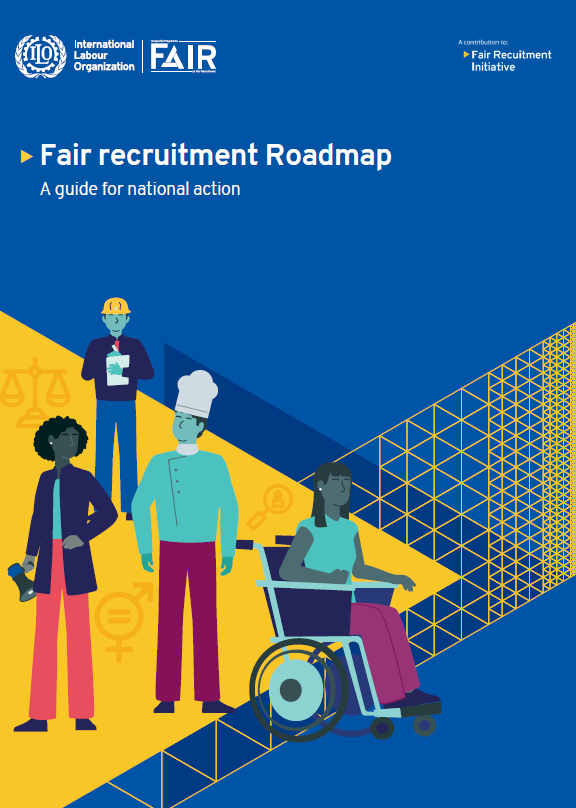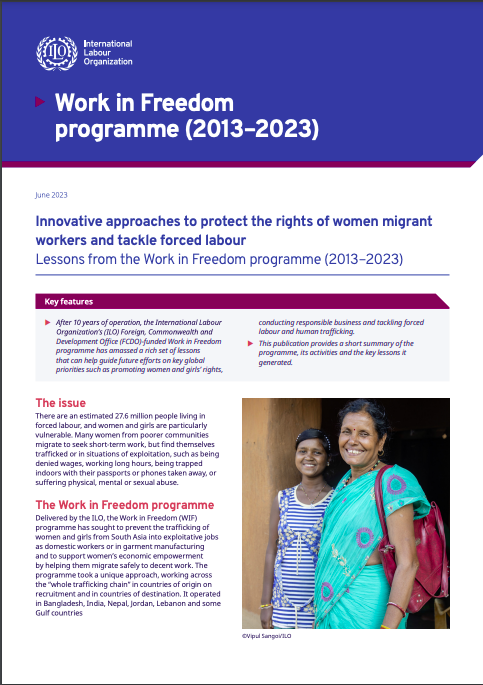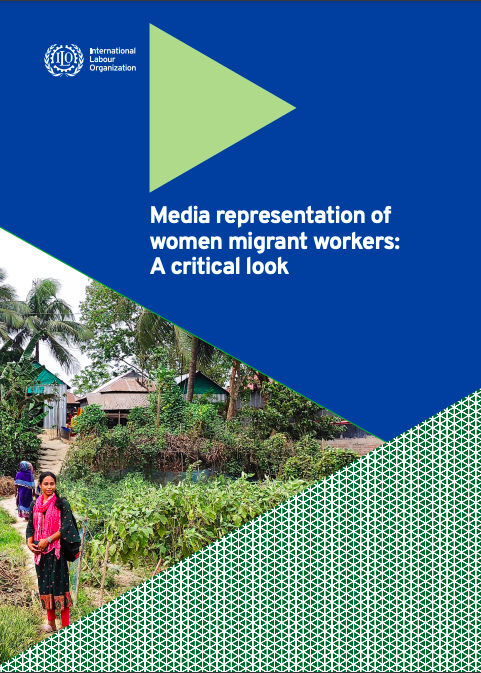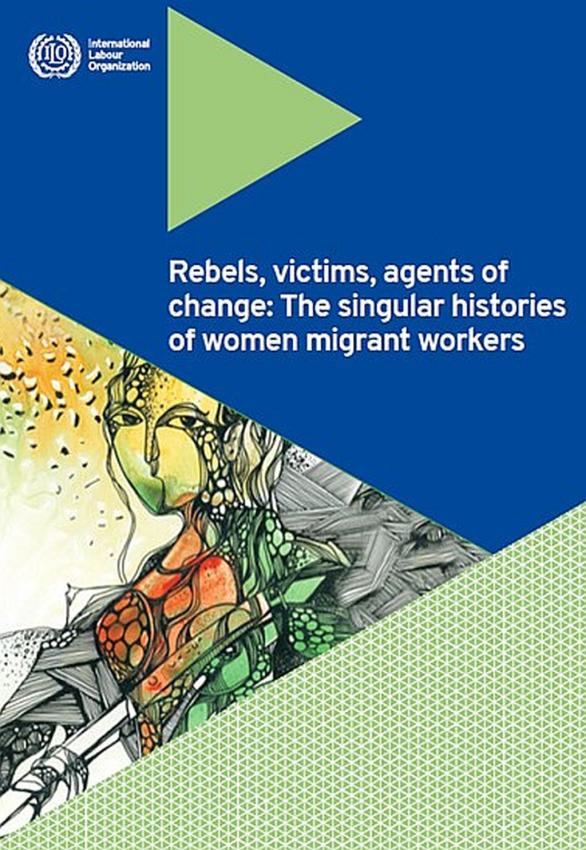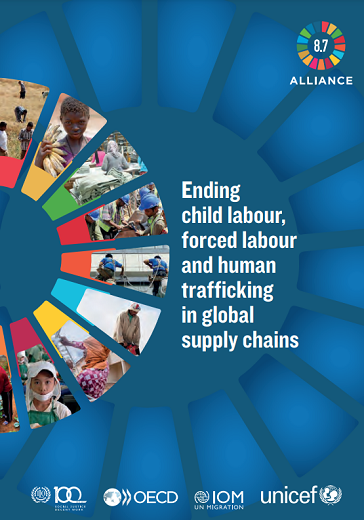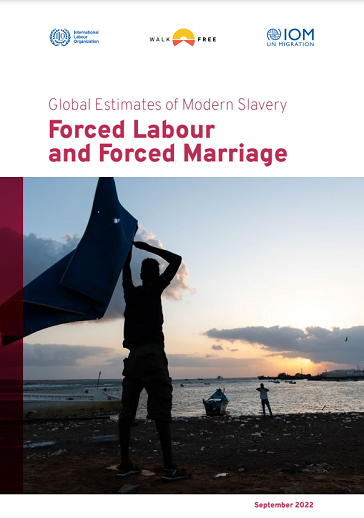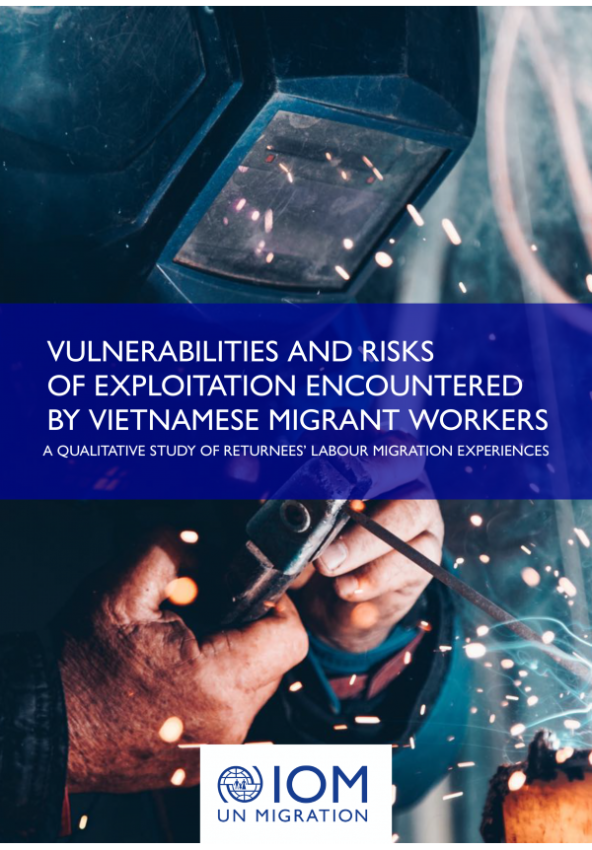Fair recruitment Roadmap: A guide for national action
This roadmap is a practical step-by-step guide to assist national policymakers and recruitment stakeholders, including governments and social partners, in effectively implementing fair recruitment at the national level.
Type of document :
Country/Region :
Year of publication :
Theme : , , , , , ,
10 Year Anniversary of the Forced Labour Protocol
Posted at June 11th 2024 12:00 AM | Updated as of June 11th 2024 12:00 AM
Region/Country :
|Themes : , , , ,
Innovative approaches to protect the rights of women migrant workers and tackle forced labour: Lessons from the Work in Freedom programme (2013–23)
This brief provides a short summary of the Work in Freedom programme outreach and activities conducted to tackle forced labour and trafficking with the key lessons it generated over the ten-year period (2013-23) of its implementation.
After 10 years of operation, the International Labour Organization’s (ILO) and Foreign, Commonwealth and Development Office (FCDO)-funded Work in Freedom programme has amassed a rich set of lessons that can help guide future efforts on key global priorities such as promoting women and girls’ rights conducting responsible business and tackling forced labour and human trafficking. This brief provides a short summary of the Work in Freedom programme, its activities and the key lessons it generated.
Type of document :
Country/Region :
Year of publication :
Theme : , , ,
Migrant domestic and garment workers in Jordan: A baseline analysis of trafficking in persons and related laws and policies
This study reviews the legal context of migration and work in Jordan’s garment and domestic work sectors. It describes gaps in law and practice in relation to international labour standards.
Type of document :
Country/Region :
Year of publication :
Theme : , ,
Media representation of women migrant workers: A critical look
The study reviews how overseas women migrant workers are characterized in print and electronic media in accordance with gender, class and geographic stereotypes. It critically assesses how women's multiple roles as workers, earners, investors, mothers and daughters, etc. are overshadowed by simplistic narratives focusing on exploitation and victimhood.
This study is based on migration-related news published in four widely circulated national English and Bangla dailies and reports aired on three television channels. The study is an in-depth analysis of the news articles and videos published and diffused between 2015 and 2021. Findings depict a majoritarian bias focusing on individual cases illustrating highly abusive women’s labour migration experiences to attract readership and viewership. Yet, reporting on how women’s labour migration also emancipates them in the context of work, family and social lives was found to be rare, thus leaving and cultivating a common perception conflating all women’s migration with abuse. Considering that such narratives reinforce a false perception that the solution to such abuses is to ban women’s migration, the analysis concludes that while human rights violations faced by migrant workers must be addressed, coverage exclusively focusing on abuses is socially dis-empowering to women and more nuanced reporting on women’s labour migration is needed.
Type of document :
Country/Region :
Year of publication :
Theme : , , , , , ,
Rebels, victims, agents of change: The singular histories of women migrant workers
The purpose of this ethnographic study is to shed light on how women view their migration and work abroad. The findings challenge conventional narratives on labour migration of women and bring out important perspectives that invaluably inform policymaking.
The research provides in-depth qualitative data on women labour migration, free of a priori judgment in a context where such activity remains contested in many parts of society. The aim is to present on women’s migratory journeys and in the process re-visit these gender constructions, as well as the social class ranking that associates honour and rank with a specific gender order. It is an important reference for academics, activists and Government practitioners.
Type of document :
Country/Region : ,
Year of publication :
Theme : , , , ,
Drogba warns about African footballers’ dreams that turn into nightmares
Posted at July 5th 2023 12:00 AM | Updated as of July 5th 2023 12:00 AM
Region/Country :
|Themes : , ,
Ending child labour, forced labour and human trafficking in global supply chains
Promoting fair recruitment is a critical priority in the context of both international and internal migration. As discussed in PART 1, a key finding of recent ILO research is that recruitment abuses – and in particular the payment of illegal recruitment fees and related costs – are one of the main ways in which forced labour and human trafficking enters supply chains.
The adoption of laws and regulations to help ensure that workers and jobseekers are not charged recruitment or related costs, or subjected to other recruitment-related abuses – addressed in the Global Compact for Safe, Orderly and Regular Migration and international legal standards – is therefore critical to broader efforts against forced labour and human trafficking.
Type of document :
Country/Region :
Year of publication :
Theme : , , , , ,
Global estimates of modern slavery: Forced labour and forced marriage
The 2021 Global Estimates reveal that, at any time during the reporting period, 49.6 million people were victims of modern slavery, either forced to work against their will or to live in a marriage without their consent.
Among the victims of modern slavery, forced labour accounts for 27.6 million and forced marriage for 22 million. According to the same report, a significant portion of forced labour cases can be attributed to abuses that occur during the recruitment phase. This report therefore calls for the promotion of fair and ethical recruitment to protect workers from abusive and fraudulent practices during the recruitment and placement process, including the charging of exorbitant recruitment fees and related expenses by unscrupulous recruitment agencies and labour brokers.
Type of document :
Country/Region :
Year of publication :
Theme : ,
Vulnerabilities and Risks of Exploitation Encountered by Vietnamese Migrant Workers
The qualitative research explores vulnerabilities and risks of exploitation faced by Vietnamese migrant workers during recruitment, employment at destinations, and upon return to Viet Nam.
The report captures the experiences of Vietnamese migrant workers on their journeys to most popular destinations – Japan, Taiwan Province of the People’s Republic of China and the Republic of Korea. It aims to support development of strategies by State policymakers and stakeholders to further strengthen protections of Vietnamese migrant workers from exploitative recruitment and employment practices.
It is part of the wider effort of IOM to support progress towards the implementation of the Global Compact for Safe, Orderly and Regular Migration and realization of the migration-related Sustainable Development Goals (SDGs).
The study was funded by the IOM Development Fund and the Global Fund to End Modern Slavery.
Type of document :
Country/Region : , , , ,
Year of publication :
Theme : ,
Subscribe to the Fair Recruitment Initiative Newsletter
Sign up to receive news delivered to your inbox.

